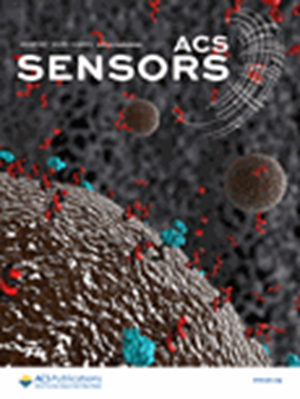用于宠物护理点检测的化学传感器和生物传感器:伴侣动物个体化诊断的机遇
IF 8.2
1区 化学
Q1 CHEMISTRY, ANALYTICAL
引用次数: 0
摘要
本文章由计算机程序翻译,如有差异,请以英文原文为准。

Chemical Sensors and Biosensors for Point-of-Care Testing of Pets: Opportunities for Individualized Diagnostics of Companion Animals
Point-of-care testing (POCT) is recognized as one of the most disruptive medical technologies for rapid and decentralized diagnostics. Successful commercial examples include portable glucose meters, pregnancy tests, and COVID-19 self-tests. However, compared to advancements in human healthcare, POCT technologies for companion animals (pets) remain significantly underdeveloped. This Review explores the latest advancements in pet POCT and examines the challenges and opportunities in the field for individualized diagnostics of cats and dogs. The most frequent diseases and their respective biomarkers in blood, urine, and saliva are discussed. We examine key strategies for developing the next-generation POCT devices by harnessing the potential of selective (bio)receptors and high-performing transducers such as lateral flow tests and electrochemical (bio)sensors. We also present the most recent research initiatives and the successful commercial pet POCT technologies. We discuss future trends in the field, such the role of biomarker discovery and development of wearable, implantable, and breath sensors. We believe that advancing pet POCT technologies benefits not only animals but also humans and the environment, supporting the One Health approach.
求助全文
通过发布文献求助,成功后即可免费获取论文全文。
去求助
来源期刊

ACS Sensors
Chemical Engineering-Bioengineering
CiteScore
14.50
自引率
3.40%
发文量
372
期刊介绍:
ACS Sensors is a peer-reviewed research journal that focuses on the dissemination of new and original knowledge in the field of sensor science, particularly those that selectively sense chemical or biological species or processes. The journal covers a broad range of topics, including but not limited to biosensors, chemical sensors, gas sensors, intracellular sensors, single molecule sensors, cell chips, and microfluidic devices. It aims to publish articles that address conceptual advances in sensing technology applicable to various types of analytes or application papers that report on the use of existing sensing concepts in new ways or for new analytes.
 求助内容:
求助内容: 应助结果提醒方式:
应助结果提醒方式:


